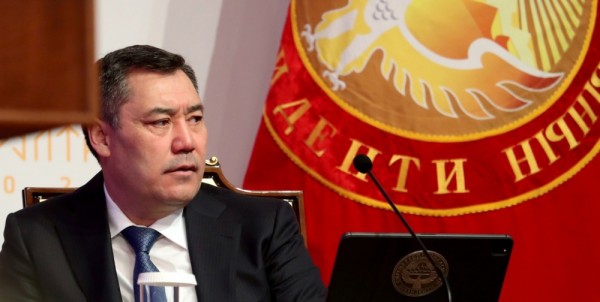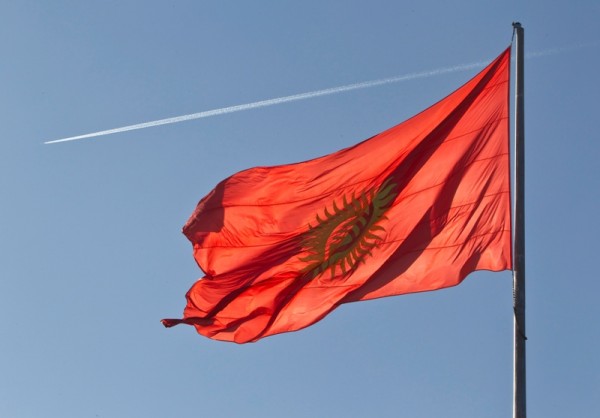The International Press Institute (IPI) has joined 23 other international press freedom and human rights organizations in expressing concern about the unstable situation for journalists and media outlets in Kyrgyzstan and the press freedom restrictions imposed on print, broadcast and online media outlets, which prevent them from providing coverage of events in the country.
Over the last three years, the situation for the media has steadily worsened in Kyrgyzstan. It is characterised by censorship, the blocking of websites, forced takeovers of media outlets, and legal and physical threats against journalists, including the murders of Kyrgyz journalists, Alisher Saipov in October 2007 and Gennady Pavlyuk in December 2009, as well as Kazakh journalist Sayat Shulembaev in December 2009, who had been reporting on the murder of Pavlyuk for Kyrgyz media.
In a joint statement issued on 4 May 2010, the organisations noted that, since the nationwide protests of 6-7 April, Kyrgyzstan’s interim government has taken a number of positive steps, including:
- Re-starting broadcasts of the Kyrgyz services of Radio Free Europe/ Radio Liberty on state radio;
- Appointing journalists who are known to be qualified and independent to the management of NTRK (KTR) state television and radio;
- Taking serious steps to investigate the attempted take-over of www.24.kg and publicly recognising the illegality of this attempt;
- Removing arrest orders against newspapers that were closed in March based on libel charges relating to the former President.
However, despite these positive steps, several negative occurrences have also taken place. Amongst others, these have included:
- Takeover attempts, like the effort to take control of the online media, www.24.kg, on 15 April by armed National Security Council (SNB) representatives;
- Announcements of nationalisation plans of privately-owned media, including Channel 5 and Piramida;
- Journalists and their defenders receiving threatening phone calls about the publication of articles criticizing the Interim Government;
- Access to information being limited for journalists, particularly in the regions;
- Lack of transparency and information about decision-making of the Interim Government.
The concern remains that these ‘positive’ steps are primarily aimed against the control of the media by the former government, whilst the ‘negative’ steps, as described above, are aimed at consolidating control by the interim government.
To demonstrate the interim government’s commitment to a strong press freedom environment, the statement’s signatories – including IPI – have urged the authorities to:
- Ensure that the independence, freedom and safety of all journalists and media outlets are respected, and any violations of press freedoms are investigated quickly and transparently, including independent investigations into all attacks and murders and ensuring an end to impunity;
- Where mechanisms for ensuring freedom of expression and press freedoms already exist under national Kyrgyz legislation in accordance with international standards, to ensure their swift and proper implementation, such as the 2007 Right to Information law;
- Ensure that the new Constitution enshrines freedom of expression, press freedoms and the right to information;
- Establish and publicise clear procedures for the timely, transparent and equal provision of information from the authorities to all media;
- Move forward without delay with transforming NTRK (KTR) into a true public service broadcaster allowing for pluralistic and independent coverage of news and information;
- Where media outlets have been nationalized, open and fair judicial processes should be undertaken to determine the legitimacy of these steps, followed by a swift process of returning ownership or undertaking a transparent de-politicized tender to put the media into private sector hands;
- Recognise and respect the important role an independent and unobstructed media will play in ensuring that the Parliamentary elections scheduled for 10 October 2010 are free and fair.
In addition, the 24 organisations have express their concern that the proposed date for the referendum on the new Constitution, scheduled for 27 June 2010, allows insufficient time for the extensive public consultation and discussion that such a fundamental document requires.
The international press, freedom of expression, democracy and human rights organisations that signed the statement include: International Press Institute (IPI), ARTICLE 19, BTC ProMedia – Bulgaria, Centre for Law and Democracy (CLD), Civil Rights Defenders (CRD), Committee to Protect Journalists (CPJ), Finnish Foundation for Media and Development (VIKES), Fojo Media Institute, Freedom House, Hivos, Institute for War and Peace Reporting (IWPR), International Federation of Journalists (IFJ), International Media Support (IMS), International News Safety Institute (INSI), Internews Europe, Internews Network, IREX, IREX Europe, Press Now, Reporters Sans Frontieres (RSF), Springboard – Sweden, United Nations Educational, Scientific and Cultural Organization (UNESCO), World Association of Community Radio Broadcasters (AMARC) – Regional Office in Kathmandu, World Association of Newspapers and News Publishers (WAN-IFRA), World Press Freedom Committee (WPFC)


